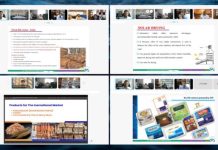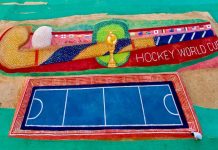Department of WCD & MS, Govt. Of Odisha, in coordination with UNICEF, Odisha launched Varschalya- A state initiative – home based parent led programme for under 3 years. The aim of this innovative initiative is to empower parents with skills and practices on early stimulation for young children for building a strong foundation.
The program was launched by Smt Tukuni Sahu, Hon’ble Minister, Women and Child Development & Mission Shakti in presence of Dr Yasmin Ali Haque, Country Representative, UNICEF, Ms. Anu Garg, PS DWCDMs , Dr Monika Neilsen Chief field officer UNICEF Bhubaneswar , Country representative BVLF Ms Rushda , Director Social welfare Mr Agrawal , Director Samagra Shiksha Abhiyan Mr Poonia , Director SCSTRTI Prof Ota and academicians’ experts through online.

Hon’ble Minister, WCD & MS, Smt Tukuni Sahu, was happy to release the comprehensive package of materials for young children. She stressed on departments’ commitment for strategic investments both funds and technical ideas for children development under 3 years. She highlighted departments expanded partnership with parents as they are the first line of responders for each child, thus varschalya initiative will thrust upon parents and care givers skill building on responsive parenting and early stimulation
Dr. Yashmin Ali Haque, India Head UNICEF said that impact of investing in the early years of a child are huge both for individuals and societies. The first 6 years of a child’s life provide an unparalleled opportunity to build brains of children who are the architects of the future. This time does not come again. Programmes providing early stimulation, and protection can improve individual adult earnings by 25% per year. Investments in early childhood programmes, starting with the youngest by parents , yield more than a 13% return in reducing poverty and income gaps. Specifically, in the time of a global pandemic, the need for more and strategic investments in enabling parents to provide a stimulating environment for children – especially during the first 3-years is a priority with convergent approach
Smt Anu Garg, Principal Secretary to Government stated that _ Parenting for 0-3 years is crucial. The science is clear: early moments matter and their effects can last a lifetime. In the first 1,000 days of life, baby’s brain develops faster than at any other time. And it’s the child’s environment and experiences that shape how happy, healthy and smart she will grow up to be.
Odisha Government is the 1st in the country to introduce parenting tips and messages in 11 languages of the state such as Saura, Santali, Munda, Oraon, Kui, Kuvi, Kishan, Koya, Juanga, Bonda, and Odia. These are developed by parenting for Lifelong Health (PLH), World Health Organization (WHO), Internet of Good Things (IoGT), Centers for Disease Control and Prevention (CDC), and Accelerating Achievement for Africa’s Adolescents and translated by Academy of tribal language and culture (ATLC).
Encouraged by the huge response for Ghare Ghare Arunima, ‘Ghare Ghare Kuni Calendar’ under the Varschalya initiative has been created with hosts of activity focusing on the development of physical and motor skills, language, cognitive, psychosocial development of a child under the age of 3.
The package of intervention include easy to read Flip chart on Varschalya for home-based activities on early stimulation; Responsive Parenting posters in 11 languages with messages on quality time, keeping it positive, structure up, bad behavior, keep calm and manage stress, talking about COVID-19; Tiki Mausi Kuhe film on parenting tips on early stimulation and responsive parenting; Film on glimpses of Ghare Ghare Arunima campaign and the series of calendars of home-based activities in 10 mother tongue on COVID-19 sensitive response; and Parenting plus ECCE
The Kuni calendar has a special focus on educating parents/ caregiver to engage children purposefully by helping them to hold objects and naming them; rocking, stretching, bending, stroking, tickling, and massaging them; singing them lullabies & songs; telling stories; facilitating outdoor activities and playing with mixed age groups, etc. The calendar is to be released every quarter.









